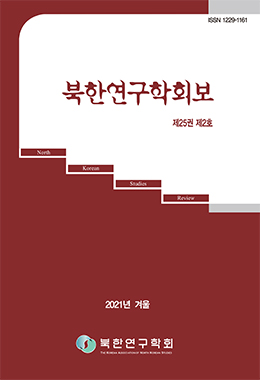본 연구는 대학에서의 평화·통일교육 교과목 개발을 위한 실행연구 결과 고안된 ‘회복적 통일교육’의 원리와 운영 사례에 대한 것이다. 여기서 회복적 통일교육은 회복적 정의 시각에 입각한 평화·통일교육을 의미한다.
회복적 정의 관점에서 볼 때 한반도 평화는 그 구성원들이 스스로 책임의식을 느끼며 자발적이고 일상적인 실천을 통해 분단 피해로부터 온전히 회복하는 것이고, 그 과정에서 개인 간 관계 및 남북 공동체를 평화롭게 회복함으로써 모두의 정의를 회복하는 과정이다.
따라서 회복적 통일교육은 분단의 폐해로부터 한반도 평화를 회복할 소통/갈등조정 역량을 기르는 교육이다. 이를 위해 비폭력대화의 이론 및 중재교육 모델을 재구성한 두 가지 방향을 제시하였다.
첫째, 구성원 모두가 안전하고 평등한 서클 구조에서 비폭력대화 원리와 요소를 활용해 공감적으로 소통하는 문화가 작동하는 배움공동체를 형성한다. 각자의 주관적 시선과 경험을 존중하면서 불편함과 갈등을 드러내길 환영하고 회복하는 평화 습관을 길러간다.
둘째, 남북 간 교류가 단절된 상황인만큼 북한 영화 및 영상이 가진 특징을 활용하여 사회구조와 문화를 비판적으로 이해하면서도 주민 의식과 일상을 공감하는 체험활동을 한다.
학습자들은 공감적 소통을 통해 치유와 회복을 경험하면서 자존감과 공동체의식이 높아졌다. 동시에 한반도 구성원으로서의 책임을 자각하면서 남북의 상생과 평화를 위한 일상에서의 실천을 고민하게 되었다. 이같은 결과는 자기 내면과 일상을 회복하는 평화의 실천으로부터 통일교육을 시작할 필요가 있다는 점을 시사한다.
This study is about ‘restorative unification education’ designed as a result of practical research for the development of peace and unification education subjects at universities. Here, restorative education for unification means education for peace and unification based on the perspective of restorative justice. From the perspective of restorative justice, peace on the Korean Peninsula means that members of society feel a sense of responsibility and fully recover from the damage of division through voluntary and daily practice. And in the process, it is a process of restoring justice for all by peacefully restoring interpersonal relationships and communities. Therefore, the goal of restorative unification education is to nurture citizens with communication and coordination capabilities to restore peace on the Korean Peninsula from the effects of division. To this end, the communication theory and mediator education model based on Nonviolent Communication(NVC) were reconstructed. First, it forms a learning community in which a culture in which all members communicate sympathetically using principles and elements of NVC in a safe and equal circle structure works. Second, since exchanges have been cut off, we use the characteristics of North Korean films and images to critically understand social structure and culture, but also engage in experiential activities that empathize with residents’ consciousness and daily life. As learners experienced healing and recovery through empathic communication, their self-esteem and sense of community increased. At the same time, I became aware of my responsibilities as a member of the Korean Peninsula and began to ponder on daily practice for mutual prosperity and peace between the two Koreas. These results suggest that it is necessary to start education for unification from the practice of peace that restores one’s inner self and daily life.




